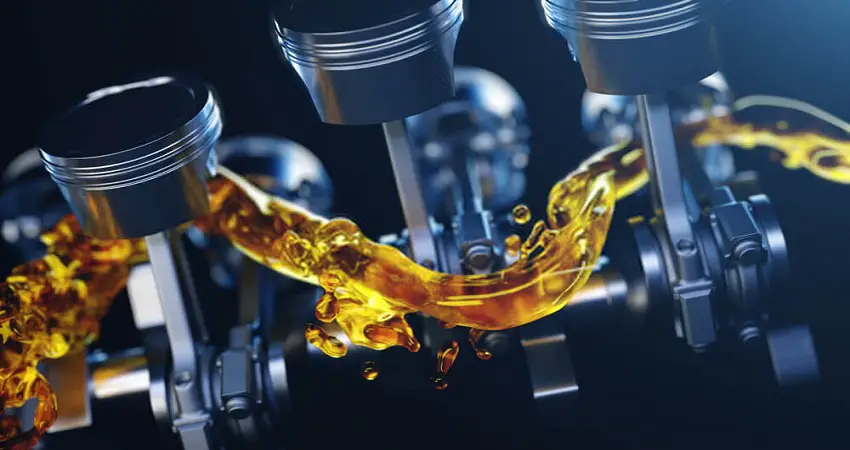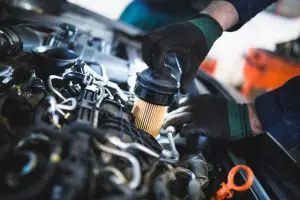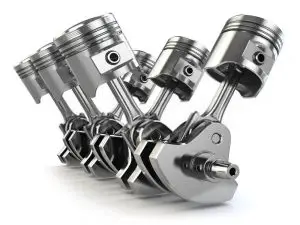Last Updated on September 13, 2022 by John Robinson
12 seconds on a dry engine. Sometimes even less than 10 seconds.
The moment you start the car, the oil immediately begins to circulate. Your oil needs to protect and cool the engine, so the faster it can lubricate the machine, the better it can protect it.
How does oil circulate through an engine?
The oil pump pulls the oil up from the sump (bottom of the engine); this is where the oil is ‘resting.’ Once it gets pulled up, it is then taken through the filter or cooler, which cools the engine and then from there it is dispersed through the engine oil passages to lubricate pistons, rings, springs, valve stems, and so on.
Thick oil or dirty oil will take much longer to circulate and won’t protect your engine as well as it should. An old filter might be the problem. If the filter is old or clogged, it will send unfiltered oil through your engine, which could create sludge in the long term.
When should I change my oil filter?
When you get an oil change.
An oil filter is not everlasting and needs to be changed as often as you change the oil. Sometimes you can keep the filter if it hasn’t been clogged up too severely, but keep in mind an old filter will not be as effective in removing particles from your oil as a new filter will.
How do I know if my filter is clogged?
- Poor performance
If you hit the accelerator and your vehicle isn’t responding, or it lags pretty severely, you might have a clogged filter.
- Sputtering engine
When you do pick up speed, and the engine begins to sputter the faster you go, it could also indicate a clogged filter. Instead, slow down and get to an auto-shop, as you can do some severe damage to your engine if you keep going.
- Low oil pressure
If your engine has a severe leak or a clogged filter, your oil pressure will plummet. If the oil pressure does drop suddenly, pull the car over and get to an auto-shop. Your engine needs to be looked at.
- Dirty Exhaust
If your exhaust is spitting out black smoke, you could be looking at an oil problem. Your engine might be burning oil, which is never good. A distinct smell of oil or gasoline is also a huge red flag.
Check out: What happens if you never change your oil? For more information.
How long can an engine run without oil?
It depends on the type of engine, but most engines can run for around 15 to 30 minutes before they will start to break down. But driving for any length of time without oil is damaging for your car. Instead, don’t do it if it can be avoided.
Without oil, the engine has no protection against the constant grind of the metal, no way to lubricate itself to prevent it from causing wear and tear, and of course, no different way to cool itself down. Even after a very short 5 minutes, the engine will already see some severe damage inside, which no additives will fix. If you do find you have run out of oil, your best bet is to pull to the side of the road, turn off the engine and call an auto-shop to come to help you out.
Some engines can be pushed and even go so far as 6000 miles before breaking down entirely, but very few machines will survive the damage. Usually, if you keep pushing beyond 15 to 30 minutes, the engine will most likely seize.






